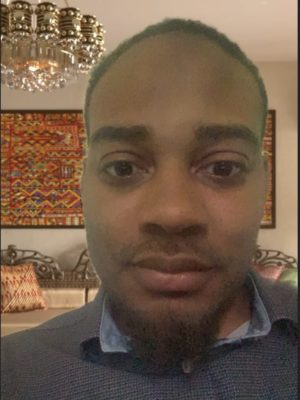Mitchell “Mitch” Gresham
Associate Therapist

Mitchell ‘Mitch’ Gresham is an Associate Professional Clinical Counselor (APCC) who has
worked with community members in a variety of different settings over the span of about 8
years. He received his Bachelor’s of Arts from St. Mary’s College of Maryland. He went on to
complete his Master’s of Science in counseling with an emphasis in multiculturalism from San
Diego State University. Mitch garnered his practicum hours from a nonprofit, The Center for
Community Counseling and Engagement, located in City Heights. Upon graduating from his
Master’s program, Mitch worked for the Community Research Foundation where he provided
counseling services to those seeking wellness as it relates to their substance abuse, chronic or
persistent suicidal thoughts and/or mental illness. Most recently, Mitch worked at an Adult Day
Health Center where he collaborated with families and loved ones of seniors’ and/or dependent
adults that had diagnoses of intellectual disabilities, Alzheimer, or dementia. Throughout his
service to the San Diego community, Mitch developed an understanding and praxis for various
counseling techniques, approaches, modalities. These evidence-based practices include:
Emotion-Focused, Cognitive Behavioral Therapy, Dialectical Behavioral Therapy, indigenous
and restorative practices in the context of BIPOC, trauma-informed care, just to name a few. At
Silva Family Therapy, Mitch is hoping to use his background, experience, and training to help
families, children and adolescents develop a healthy concept of their identifies using
intersectionality to consider their sexual/gender identities, racial and ethnic background,
economic status, disability or ability; develop an identity grounded in resilience and strength
when coming to grips with a new diagnosis; healing from racial, generational and historical
trauma by developing counter-narratives; challenges and identities that may arise with different
phases of life and how to respond to grief and loss after gaining or losing a family role/identity
due to substance use or socio-emotional health.
worked with community members in a variety of different settings over the span of about 8
years. He received his Bachelor’s of Arts from St. Mary’s College of Maryland. He went on to
complete his Master’s of Science in counseling with an emphasis in multiculturalism from San
Diego State University. Mitch garnered his practicum hours from a nonprofit, The Center for
Community Counseling and Engagement, located in City Heights. Upon graduating from his
Master’s program, Mitch worked for the Community Research Foundation where he provided
counseling services to those seeking wellness as it relates to their substance abuse, chronic or
persistent suicidal thoughts and/or mental illness. Most recently, Mitch worked at an Adult Day
Health Center where he collaborated with families and loved ones of seniors’ and/or dependent
adults that had diagnoses of intellectual disabilities, Alzheimer, or dementia. Throughout his
service to the San Diego community, Mitch developed an understanding and praxis for various
counseling techniques, approaches, modalities. These evidence-based practices include:
Emotion-Focused, Cognitive Behavioral Therapy, Dialectical Behavioral Therapy, indigenous
and restorative practices in the context of BIPOC, trauma-informed care, just to name a few. At
Silva Family Therapy, Mitch is hoping to use his background, experience, and training to help
families, children and adolescents develop a healthy concept of their identifies using
intersectionality to consider their sexual/gender identities, racial and ethnic background,
economic status, disability or ability; develop an identity grounded in resilience and strength
when coming to grips with a new diagnosis; healing from racial, generational and historical
trauma by developing counter-narratives; challenges and identities that may arise with different
phases of life and how to respond to grief and loss after gaining or losing a family role/identity
due to substance use or socio-emotional health.